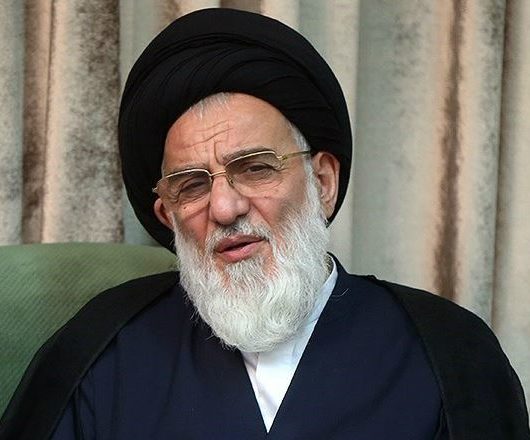January 25, 2019

Mahmud Hashemi-Shahrudi, an ayatollah who headed Iran’s Judiciary for 10 years and last year succeeded Ali-Akbar Hashemi-Rafsanjani as chair of the Expediency Council, died December 24 after a long bout with cancer. He was 70 years old.
Shahrudi had long been touted as a possible successor to the Supreme Leader. He was broadly supported by many of the less conservative clergy who hoped to keep an ultra-conservative out of the top slot.
But in recent years, he had opened an office in Najaf and many saw him promoting himself as a possible successor to Grand Ayatollah Ali Sistani as the senior cleric resident in Najaf.
Shahrudi was a student of Iran’s revolutionary founder, Rohollah Khomeini. At the time of his death, Shahrudi had been chairman since 2017 of the Expediency Council, which arbitrates disputes between the Majlis and the 12-man Council of Guardians. Shahrudi was also a member of the Council of Guardians for the last decade.
In addition, he was deputy chairman of the Assembly of Experts, which chooses the Supreme Leader when that post falls vacant.
Shahrudi had not been seen in public for several months before passing away at Tehran’s Khatam ol-Anbiya Hospital. Several months ago, he underwent surgery for cancer in Germany. A German lawmaker filed a complaint against Shahrudi during his stay, calling for him to be charged with crimes against humanity, but a German judge found no grounds to hold him. Nonetheless, Shahrudi left Germany early.
Shahrudi headed the Judiciary between 1999 and 2009. While his tenure saw hundreds of executions and a concerted crackdown on activists, dissidents and the reformist media, he was broadly viewed as much less harsh than many of his contemporaries.
For example, he ordered a moratorium on stoning as a method of execution.
Shahrudi was born in Najaf in Iraq to Iranian parents August 18, 1948, and met Khomeini when the latter was exiled to Iraq in the 1960s. Shahrudi was raised bi-lingual. He moved to Iran after the 1979 Iranian revolution. In Iran, he first became well-known during the Iran-Iraq war when he became one of the two founders of the Supreme Council for the Islamic Revolution in Iraq (SCIRI), which fielded the Badr Force, a military group comprised of Iraqi troops recruited from among Shii prisoners of war to fight on behalf of Iran.